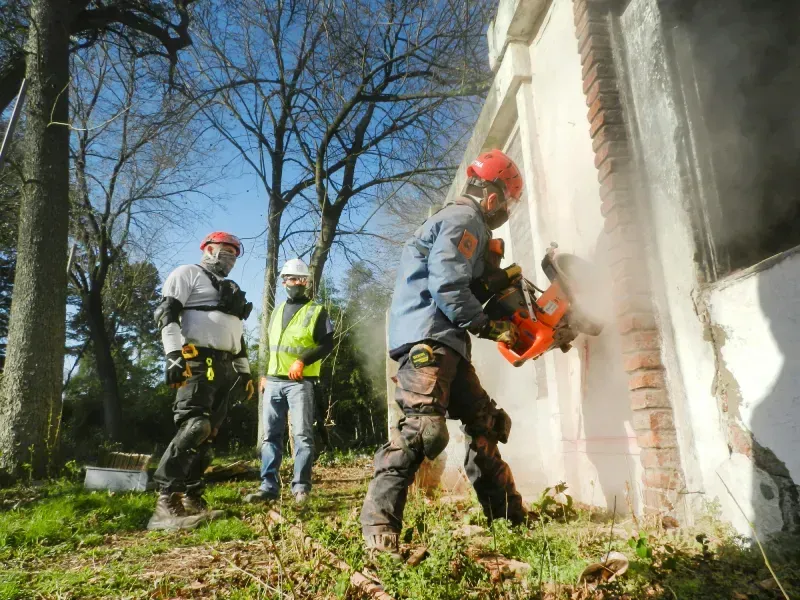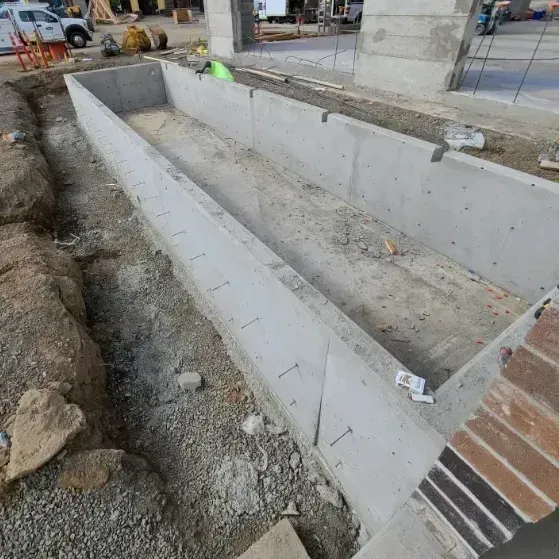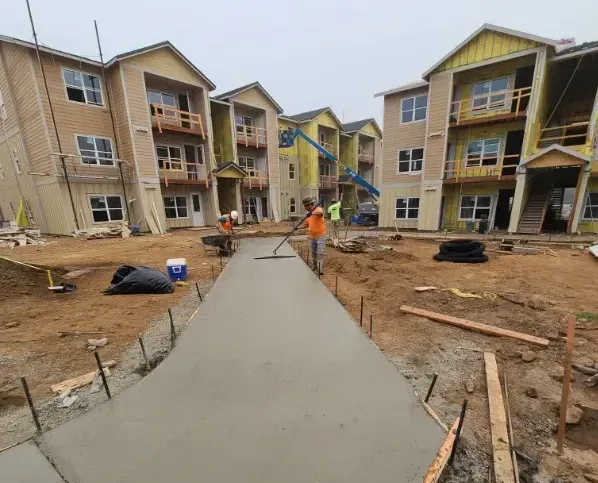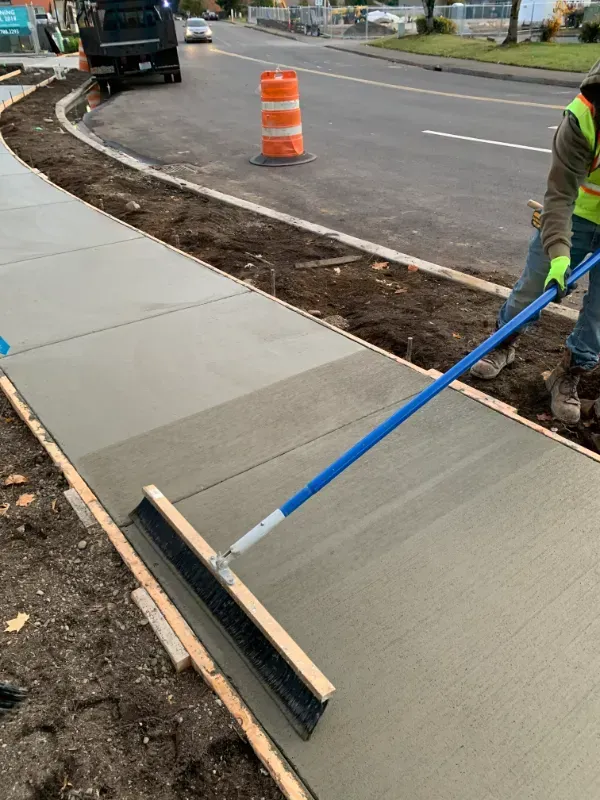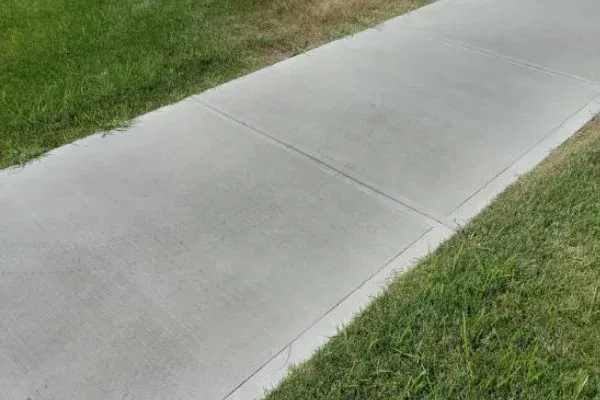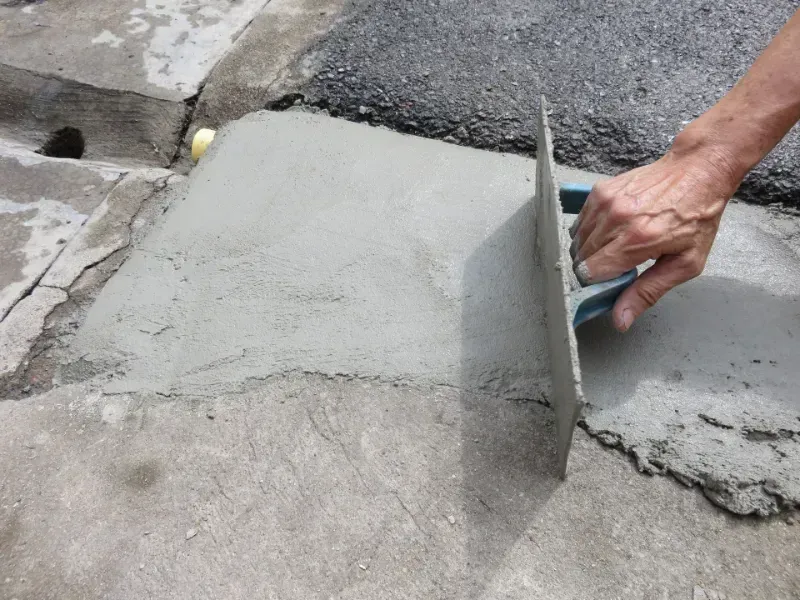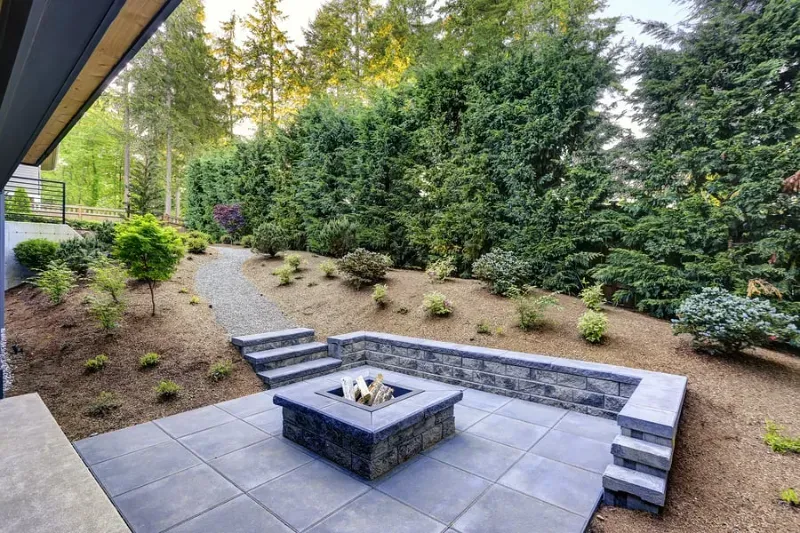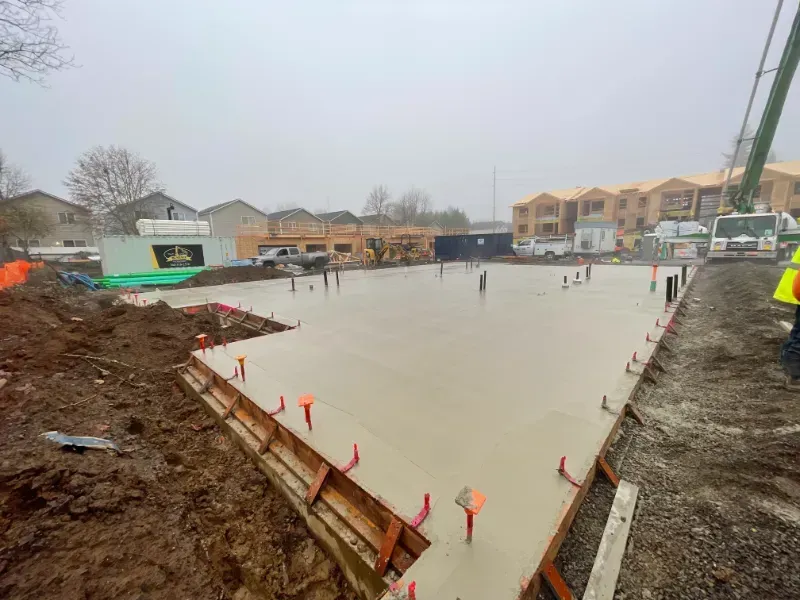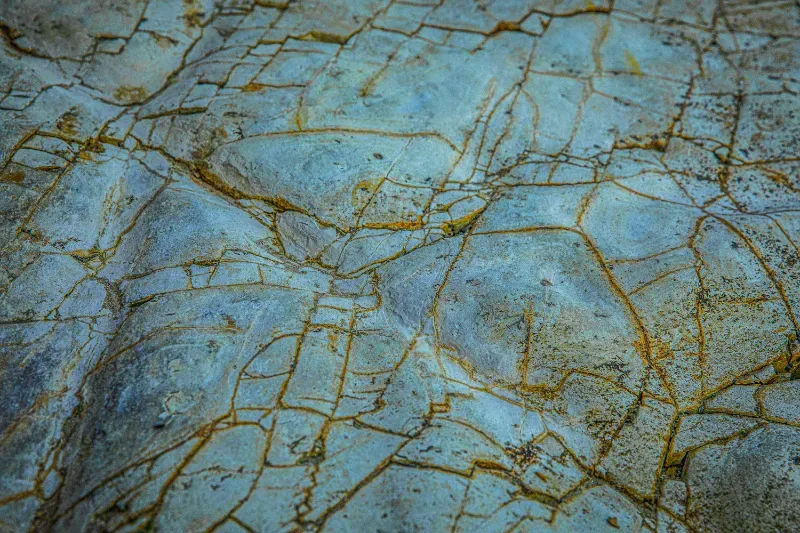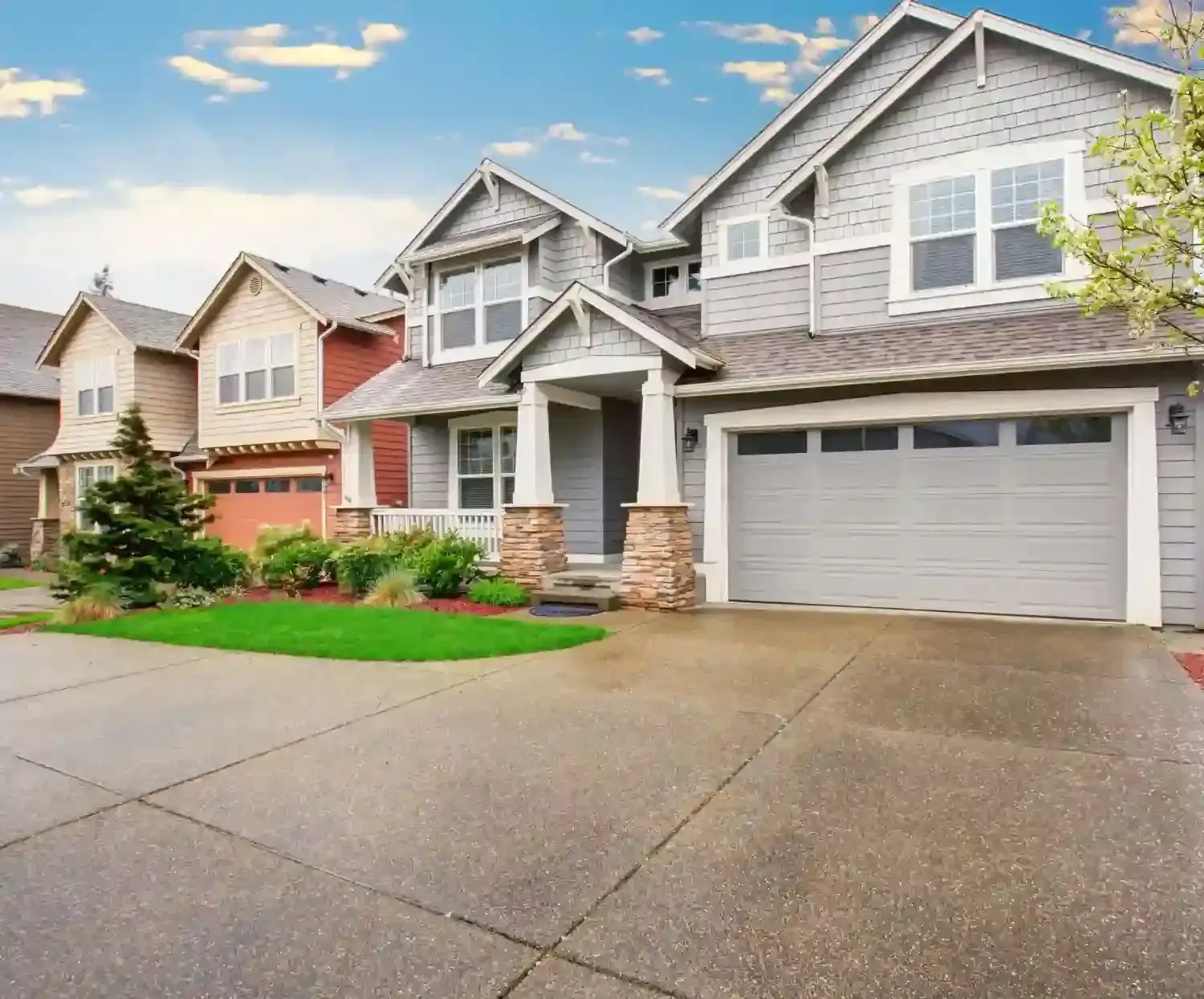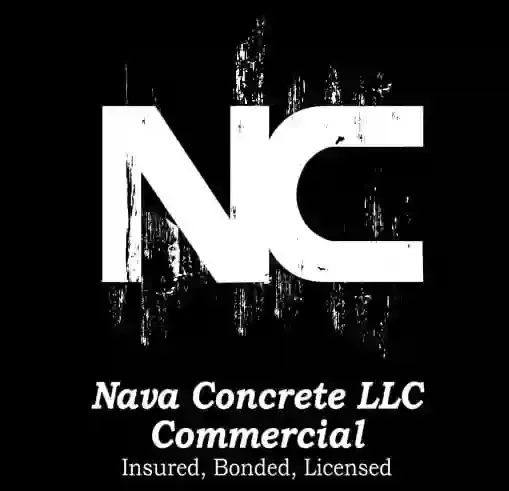Residential vs. Commercial Concrete: What Makes Them Different?
What Sets Residential and Commercial Concrete Apart
If you look around your neighborhood or the town center you will notice concrete everywhere: driveways, sidewalks, shopping plazas, and parking lots. However, not all concrete is the same.
Residential and commercial concrete serve very different purposes; residential concrete is more geared towards home comfort, style, and living (driveways, patios, etc.), while commercial concrete is meant for strength and durability.
The biggest differences have to do with the scale and strength of the mixes. Residential concrete tends to utilize lighter materials and smaller pours, whereas commercial jobs tend to use reinforced concrete with steel and stronger mixes. Regardless of the differences, skill and precision always come into play because every pour is for a reason, and every project built is made to endure.
Understanding the Purpose of Each Concrete Project Type
Every concrete project is started with a simple question: What is it going to be used for?
For homes, concrete is all about comfort and curb appeal. It is the driveway that the kids learn to ride their bicycles on or the patio where families gather for weekend barbecues. Home projects are about looking good and making life easier.
For commercial concrete, it is about heavy use. It must be able to withstand constant pressure from delivery trucks, equipment use, and crowds of people. This isn’t about looks, it’s about lasting performance. While residential concrete helps everyone to enjoy life, commercial concrete helps keep a city moving.
Design and Structural Needs in Residential Concrete
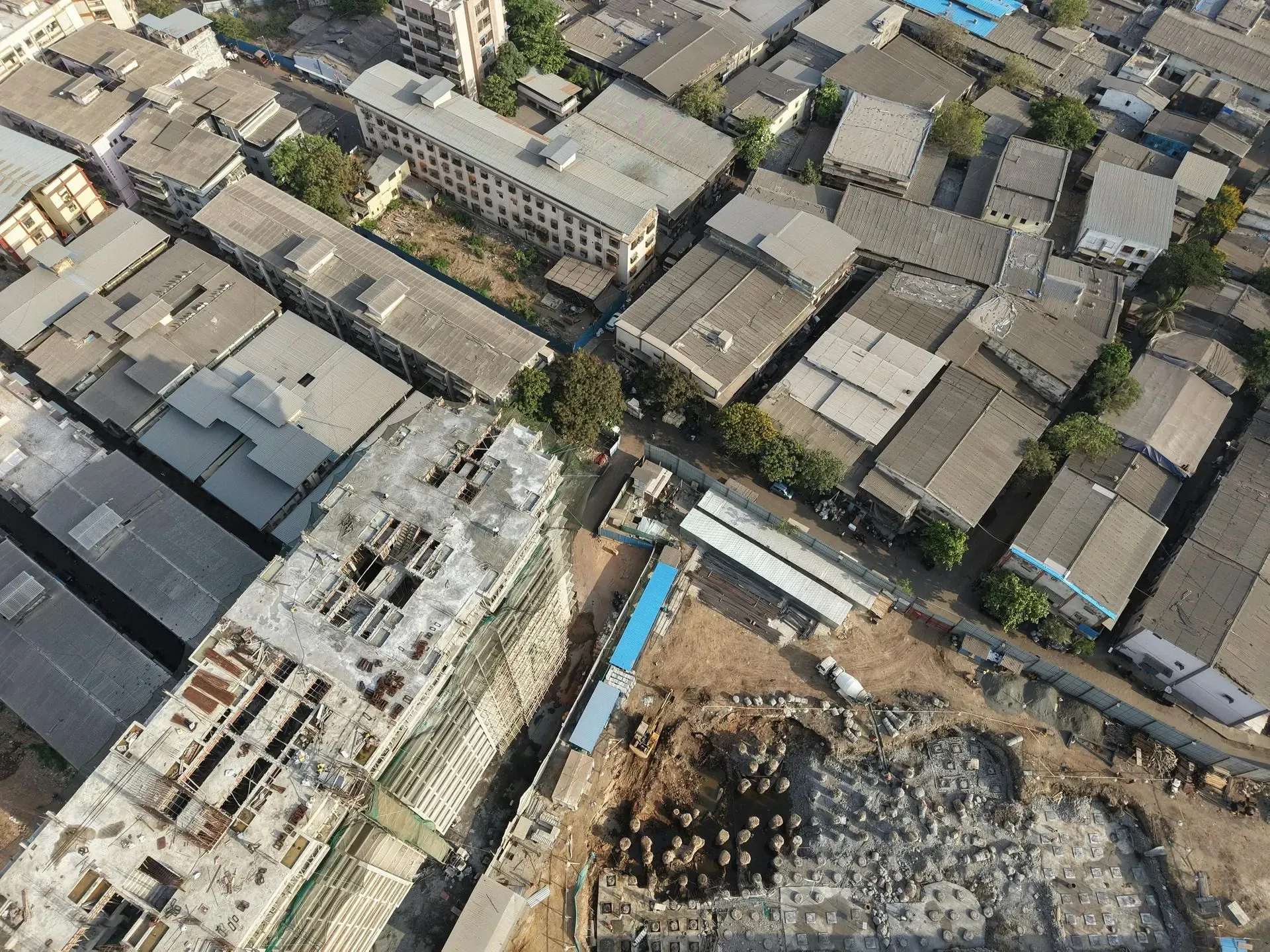
Residential concrete has evolved from standard grey slabs. Homeowners now see it as canvas, with possibilities ranging from color, texture, or stamped patterns matching the aesthetics of their home. Yet good structure will always come first. The combination of a solid base, the proper thickness, and proper curing helps decide whether the surface lasts through winter, or cracks during the first freeze.
Smart design usually includes:
- Proper grading to prevent standing water
- Reinforcement with steel or mesh for extra strength
- A coat of sealer for protection from moisture/stains
When done correctly, residential concrete is beautiful and strong, while being functional and stylish.
Commercial Concrete Standards and Complexity
Commercial concrete is a completely different matter. Those projects are completed under strict engineering standards and building codes that are enforced locally. The mixes will be stronger, the reinforcement will be heavier, and the curing will be controlled in the field.
Picture the slab that is placed on the floor of a supermarket. It must carry thousands of pounds of products and equipment while still being smooth and durable. That exactness is required in those projects, and the commercial builders must get it right the first time every time.
Differences in Materials and Concrete Mixes
The materials themselves tell the story. Residential concrete tends to be simpler in its solution, rather than finish-ready with the delicate and clean look that uses fewer additives than commercial concrete. Commercial products often use special ingredients, such as fly ash or silica fumes, to frame a solution for strength, wear and weather resistance, and so on.
Here’s a simple way to think about it: Residential focuses on comfort and design. Commercial frames a culture of high power and durability.
Each concrete mix design employs a specific material system. A well-placed concrete will hold up through rain or snow as years pass, as long as each mix maintenance is properly cared for.
Equipment and Techniques for Large Scale Concrete Projects
The tools used in a project tell you a great deal. For a residential project, there will be wheelbarrows, mixers, and hand tools for final finishes. In a commercial situation, there will be cranes, concrete pumps, and laser-guided leveling machines. Those have changed the game.
Laser levels guarantee flat floors, and industrial vibrators eliminate air voids in deep pours. It does not matter if it's a backyard patio or a large warehouse floor, the right tools matter.
Project Timelines and Scheduling
Residential concrete projects are usually quick. We are typically installing or enduring driveways or patios only 2-5 days from start until finish. Homeowners like the fast turnaround.
When it comes to commercial projects, the length of time it takes to complete them is a challenge all its own. We are usually working on a commercial job for weeks or months, with multiple crews, inspections, and precision timing. Timing becomes vital for both residential and commercial projects. If we pour too early or let the concrete dry too fast, it could crack. Concrete crews that are experienced always plan ahead - considering the weather, curing time, and materials availability.
Concrete rewards patience. If you rush the job, you will see that later!
Cost Factors for Residential and Commercial Concrete
The cost of concrete work can largely depend on the size of the job, the design, and the materials used. Residential jobs will generally be less expensive by virtue of being less square footage and requiring less reinforcing. Adding any type of decorative element like stamping or color may incur just a small increase in pricing.
Commercial work is more expensive mainly due to the scale and complexity of the project. The greatest added expense of a commercial project will likely be:
• Heavy equipment and skilled labor
• Engineering oversight and building permit submittal
• Specialty materials and volume of concrete
While commercial projects will incur a higher cost than residential projects, both yield a long-term value if built correctly. A well built concrete surface is an investment that can last for many decades.
Safety and Compliance in Each Setting
Safety always comes first. In residential work, it is simply keeping the job site safe by ensuring workers wear appropriate PPE, by blocking off areas of the jobsite, and keeping the work area clean.
Commercial scope projects take it to a higher level. Contractors will follow strict OSHA guidelines, conduct daily safety inspections, and train their crews to minimize accidents. Regardless of the size of the project the outcomes are always the same. Everyone returns home safe.
Choosing the Right Concrete Contractor
A great contractor can simplify the ordinary into something exceptional. A stellar contractor will understand the craft, communicate clearly, and ensure the customer comprehends every step of the project.
If you are located in
Vancouver and would like to begin your next concrete project, contact
Nava Concrete LLC. Their team will deliver quality and care in each and every pour from custom patios and driveways to larger commercial build projects. You can call
360 721 8093 for a free estimate and also for technical expertise. Let's build something solid together!
